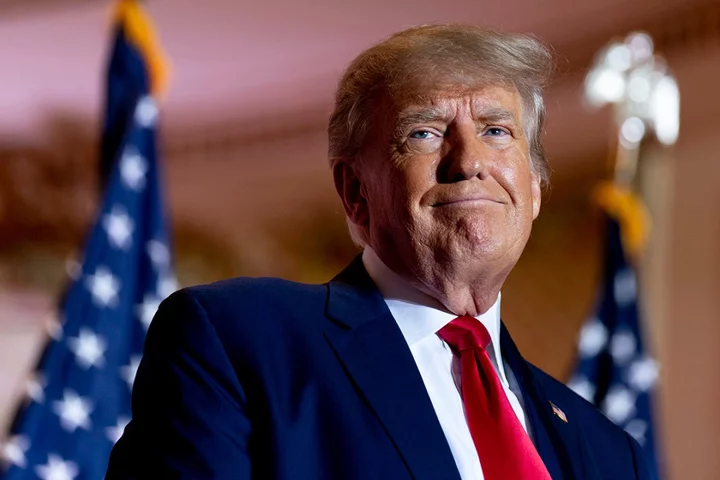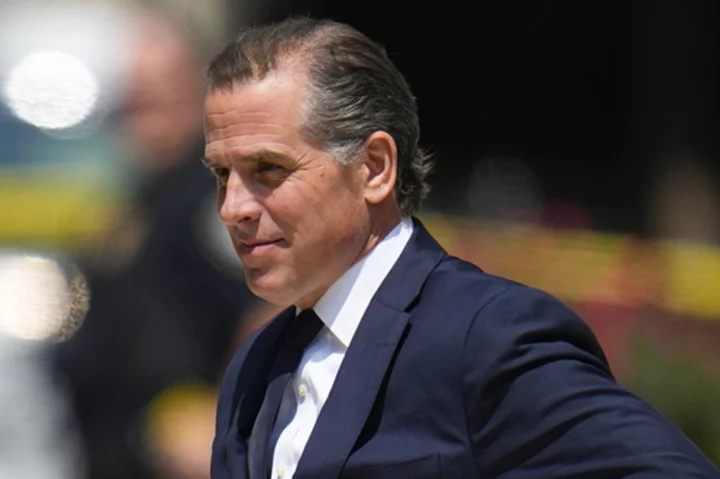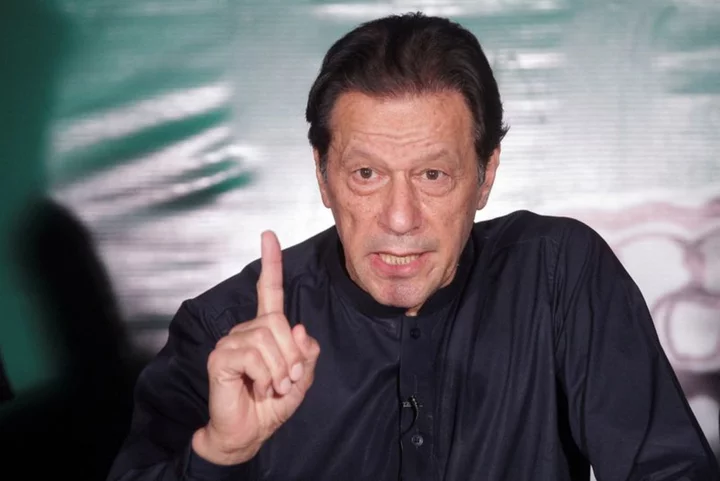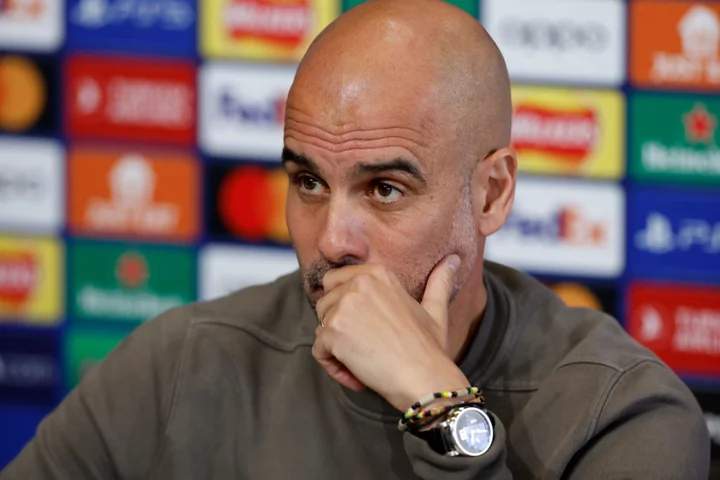Donald Trump is leading the field to become the Republican Party’s presidential nominee once again in 2024, his supporters apparently undeterred by his mounting legal problems – or the 24-hour circus of his first-term – and keen to give him another shot at the White House, such is their animosity to incumbent Joe Biden. None of Ron DeSantis, Mike Pence, Nikki Haley, Chris Christie, Tim Scott or any of the other GOP stragglers are polling close to the former commander-in-chief as of summer 2023, despite the fact that Mr Trump has already been indicted twice this year and is staring down the barrel of a potential third and fourth. Having already stepped out to appeal not guilty at two arraignment hearings in New York and Miami over the alleged misrepresentation of his business records to conceal hush money payments and the alleged hoarding of classified documents in his Mar-a-Lago bathroom, the former reality TV star could now face charges over his role in inciting the Capitol riot of 6 January 2021 and, potentially, for attempting to influence the 2020 vote count in Georgia by pressuring state officials. None of which appears to discourage his loyal fanbase, who have been prepared to overlook the myriad disappointments of Mr Trump’s first tenure in the Oval Office, his historic double impeachment and his disastrous midterms picks last November to cheer him on at rallies, splash out on merchandise and generously donate to his campaign. While more traditional conservatives are ready to move on, the MAGA movement remains significant and its members are all too ready to cheerily swallow their idol’s baseless claims that the Biden administration has “weaponised” the US justice system against an innocent man in order to thwart the “American comeback” he has promised. Just in case you feel tempted to look back on the years 2017 to 2021 through rose-tinted spectacles, here is a refresher on precisely what happened during that angry whirlwind of a presidency, which began with government-by-Twitter and ended with the unprecedented and disgraceful spectacle of a president impeached not once but twice. House speaker Nancy Pelosi first announced she was launching an impeachment inquiry against Donald Trump on 24 September 2019 in response to a complaint raised against him by an anonymous CIA whistleblower. The issue related to a call the 45th US president had placed with Ukraine’s new president Volodymyr Zelensky (a great deal more famous now than he was then) on 25 July that year, in which the American appeared to proposition his counterpart in Eastern Europe with a quid pro quo. Mr Trump hinted that $400m in congressionally-approved US military aid to Kyiv to help fend off Russian aggression in the eastern Donbas region of Ukraine would be withheld unless Mr Zelensky’s government launched a politically embarrassing anti-corruption probe into Mr Trump’s own domestic rival, one Joseph R Biden, who was then leading the Democratic field to challenge him in 2020. “I would like you to do us a favour though…” was how the president introduced his condition on the call, pressuring Mr Zelensky to pursue a conspiracy theory alleging that Mr Biden, while serving as US vice president to Barack Obama, had sought the dismissal of a Ukrainian prosecutor investigating a local gas company, Burisma, on whose board his troubled son Hunter Biden sat, a matter already pursued by Mr Trump’s personal attorney Rudy Giuliani. Following Ms Pelosi’s bombshell announcement, the House Intelligence, Oversight and Foreign Affairs committees began interviewing State Department, Pentagon and National Security Council (NSC) officials behind closed doors throughout October, peacing the truth together from their depositions before summoning several back to testify in public across a series of dramatic mid-November hearings. The inquiry’s public phase introduced a memorable cast of characters, including former US ambassador to Ukraine Marie Yovanovitch, Ukraine charge d’affaires Bill Taylor, displaced Durhamite and Russia expert Dr Fiona Hill, the nattily bowtied George Kent, vice presidential aide Jennifer Williams, decorated NSC director Lt Col Alexander Vindman in full dress uniform and ambassador to the EU Gordon Sondland, a smirking ex-hotelier who had donated $1m to the Trump campaign for the privilege of ending up in the mess. By and large, the witnesses proved themselves to be impressive and principled experts in their fields and made fools of the MAGA Republicans attempting to pick holes in their testimony – Devin Nunes, Jim Jordan, Doug Collins, Elise Stefanik and Louie Gohmert among them. Mr Trump, predictably, spent his time denouncing the proceedings on Twitter as a “scam” and a second “witch hunt” following on from Robert Mueller’s investigation of his alleged ties to Russia, even engaging in some live witness intimidation when he tweeted nastily about Ms Yovanovitch as she gave evidence. The House went on to formally accuse the president on two counts, abuse of power and obstruction of Congress, on 10 December. Eight days later, representatives backed both articles, casting their votes largely along party lines and pushing the matter forward to a trial in the Republican-held Senate. The Democrats, led by California congressman Adam Schiff, made their case admirably but, in the end, only Mitt Romney dared to break ranks and vote for Mr Trump’s conviction in the upper chamber, despite some heavy signalling from “rebel” GOP senators Lamar Alexander, Lisa Murkowski and Susan Collins that they might join him, before hopelessly bottling it. Impeached but not convicted, Mr Trump was free to carry on regardless. Ms Collins’ excuse that she believed he had “learned his lesson” from the Zelensky affair would later prove to be an even more laughable contention than it had sounded when she first uttered it. The other side of his disastrous mishandling of the coronavirus pandemic, a summer of Black Lives Matter demonstrations over the police murder of George Floyd and his comprehensive defeat in the 2020 presidential election to Mr Biden, Mr Trump was impeached for a history-making second time on 13 January 2021 when the House found that he had incited the attempted insurrection at the US Capitol a week earlier by leading his disappointed supporters on with the “Big Lie” that only (non-existent) mass voter fraud had stopped him securing a second term. The tragic events of 6 January – on which a mob of QAnon zealots, Proud Boys and Oath Keepers stormed the legislative complex to try to stop the certification of the election results, five people were killed, a gallows was erected to hang Mr Pence and Congress was attacked for the first time since it was set alight by British soldiers in 1814 – are well documented. In its aftermath, Mr Trump, who declined to call off his supporters, preferring instead to watch the “American carnage” he had predicted at his inauguration finally unfold on live TV, was booted off social media and the House moved quickly to impeach him for an unheard-of second time, passing an article accusing him of incitement to insurrection. Speaker Pelosi said as she cast her vote to impeach that the president represented “a clear and present danger” so long as he remained in the Oval Office and accused him of trying to “repeal reality” in challenging the election result. The vote passed 232-197 in the lower chamber but, again, the Senate granted him an acquittal on 13 February, with only seven Republicans crossing the aisle to join the 50 Democrats in demanding accountability – not enough to land the two-thirds majority needed. Had just 10 more listened to their consciences and joined the rebellion, the US Constitution would have barred Mr Trump from ever running for high office again, ruling as it does that “judgement in cases of impeachment shall not extend further than to removal from office, and disqualification to hold and enjoy any office of honour, trust or profit under the United States”. Twice impeached but convicted on neither occasion, Mr Trump was entirely free to announce a fresh bid for the White House, as he did last November, seemingly as untroubled by burning shame as ever. Read More Trump news – live: Georgia grand jury could weigh conspiracy charge as ex-NYPD boss hands docs to Jan 6 probe Mark Meadows laughed off Trump’s claims of election fraud in text to White House attorney, says report Unanswered questions about Trump’s looming January 6 indictment What is an indictment? Donald Trump facing third of 2023 over Capitol riot Donald Trump is the first former president arrested on federal charges. Can he still run in 2024?
Donald Trump is leading the field to become the Republican Party’s presidential nominee once again in 2024, his supporters apparently undeterred by his mounting legal problems – or the 24-hour circus of his first-term – and keen to give him another shot at the White House, such is their animosity to incumbent Joe Biden.
None of Ron DeSantis, Mike Pence, Nikki Haley, Chris Christie, Tim Scott or any of the other GOP stragglers are polling close to the former commander-in-chief as of summer 2023, despite the fact that Mr Trump has already been indicted twice this year and is staring down the barrel of a potential third and fourth.
Having already stepped out to appeal not guilty at two arraignment hearings in New York and Miami over the alleged misrepresentation of his business records to conceal hush money payments and the alleged hoarding of classified documents in his Mar-a-Lago bathroom, the former reality TV star could now face charges over his role in inciting the Capitol riot of 6 January 2021 and, potentially, for attempting to influence the 2020 vote count in Georgia by pressuring state officials.
None of which appears to discourage his loyal fanbase, who have been prepared to overlook the myriad disappointments of Mr Trump’s first tenure in the Oval Office, his historic double impeachment and his disastrous midterms picks last November to cheer him on at rallies, splash out on merchandise and generously donate to his campaign.
While more traditional conservatives are ready to move on, the MAGA movement remains significant and its members are all too ready to cheerily swallow their idol’s baseless claims that the Biden administration has “weaponised” the US justice system against an innocent man in order to thwart the “American comeback” he has promised.
Just in case you feel tempted to look back on the years 2017 to 2021 through rose-tinted spectacles, here is a refresher on precisely what happened during that angry whirlwind of a presidency, which began with government-by-Twitter and ended with the unprecedented and disgraceful spectacle of a president impeached not once but twice.
House speaker Nancy Pelosi first announced she was launching an impeachment inquiry against Donald Trump on 24 September 2019 in response to a complaint raised against him by an anonymous CIA whistleblower.
The issue related to a call the 45th US president had placed with Ukraine’s new president Volodymyr Zelensky (a great deal more famous now than he was then) on 25 July that year, in which the American appeared to proposition his counterpart in Eastern Europe with a quid pro quo.
Mr Trump hinted that $400m in congressionally-approved US military aid to Kyiv to help fend off Russian aggression in the eastern Donbas region of Ukraine would be withheld unless Mr Zelensky’s government launched a politically embarrassing anti-corruption probe into Mr Trump’s own domestic rival, one Joseph R Biden, who was then leading the Democratic field to challenge him in 2020.
“I would like you to do us a favour though…” was how the president introduced his condition on the call, pressuring Mr Zelensky to pursue a conspiracy theory alleging that Mr Biden, while serving as US vice president to Barack Obama, had sought the dismissal of a Ukrainian prosecutor investigating a local gas company, Burisma, on whose board his troubled son Hunter Biden sat, a matter already pursued by Mr Trump’s personal attorney Rudy Giuliani.
Following Ms Pelosi’s bombshell announcement, the House Intelligence, Oversight and Foreign Affairs committees began interviewing State Department, Pentagon and National Security Council (NSC) officials behind closed doors throughout October, peacing the truth together from their depositions before summoning several back to testify in public across a series of dramatic mid-November hearings.
The inquiry’s public phase introduced a memorable cast of characters, including former US ambassador to Ukraine Marie Yovanovitch, Ukraine charge d’affaires Bill Taylor, displaced Durhamite and Russia expert Dr Fiona Hill, the nattily bowtied George Kent, vice presidential aide Jennifer Williams, decorated NSC director Lt Col Alexander Vindman in full dress uniform and ambassador to the EU Gordon Sondland, a smirking ex-hotelier who had donated $1m to the Trump campaign for the privilege of ending up in the mess.
By and large, the witnesses proved themselves to be impressive and principled experts in their fields and made fools of the MAGA Republicans attempting to pick holes in their testimony – Devin Nunes, Jim Jordan, Doug Collins, Elise Stefanik and Louie Gohmert among them.
Mr Trump, predictably, spent his time denouncing the proceedings on Twitter as a “scam” and a second “witch hunt” following on from Robert Mueller’s investigation of his alleged ties to Russia, even engaging in some live witness intimidation when he tweeted nastily about Ms Yovanovitch as she gave evidence.
The House went on to formally accuse the president on two counts, abuse of power and obstruction of Congress, on 10 December.
Eight days later, representatives backed both articles, casting their votes largely along party lines and pushing the matter forward to a trial in the Republican-held Senate.
The Democrats, led by California congressman Adam Schiff, made their case admirably but, in the end, only Mitt Romney dared to break ranks and vote for Mr Trump’s conviction in the upper chamber, despite some heavy signalling from “rebel” GOP senators Lamar Alexander, Lisa Murkowski and Susan Collins that they might join him, before hopelessly bottling it.
Impeached but not convicted, Mr Trump was free to carry on regardless.
Ms Collins’ excuse that she believed he had “learned his lesson” from the Zelensky affair would later prove to be an even more laughable contention than it had sounded when she first uttered it.
The other side of his disastrous mishandling of the coronavirus pandemic, a summer of Black Lives Matter demonstrations over the police murder of George Floyd and his comprehensive defeat in the 2020 presidential election to Mr Biden, Mr Trump was impeached for a history-making second time on 13 January 2021 when the House found that he had incited the attempted insurrection at the US Capitol a week earlier by leading his disappointed supporters on with the “Big Lie” that only (non-existent) mass voter fraud had stopped him securing a second term.
The tragic events of 6 January – on which a mob of QAnon zealots, Proud Boys and Oath Keepers stormed the legislative complex to try to stop the certification of the election results, five people were killed, a gallows was erected to hang Mr Pence and Congress was attacked for the first time since it was set alight by British soldiers in 1814 – are well documented.
In its aftermath, Mr Trump, who declined to call off his supporters, preferring instead to watch the “American carnage” he had predicted at his inauguration finally unfold on live TV, was booted off social media and the House moved quickly to impeach him for an unheard-of second time, passing an article accusing him of incitement to insurrection.
Speaker Pelosi said as she cast her vote to impeach that the president represented “a clear and present danger” so long as he remained in the Oval Office and accused him of trying to “repeal reality” in challenging the election result.
The vote passed 232-197 in the lower chamber but, again, the Senate granted him an acquittal on 13 February, with only seven Republicans crossing the aisle to join the 50 Democrats in demanding accountability – not enough to land the two-thirds majority needed.
Had just 10 more listened to their consciences and joined the rebellion, the US Constitution would have barred Mr Trump from ever running for high office again, ruling as it does that “judgement in cases of impeachment shall not extend further than to removal from office, and disqualification to hold and enjoy any office of honour, trust or profit under the United States”.
Twice impeached but convicted on neither occasion, Mr Trump was entirely free to announce a fresh bid for the White House, as he did last November, seemingly as untroubled by burning shame as ever.
Read More
Trump news – live: Georgia grand jury could weigh conspiracy charge as ex-NYPD boss hands docs to Jan 6 probe
Mark Meadows laughed off Trump’s claims of election fraud in text to White House attorney, says report
Unanswered questions about Trump’s looming January 6 indictment
What is an indictment? Donald Trump facing third of 2023 over Capitol riot
Donald Trump is the first former president arrested on federal charges. Can he still run in 2024?









